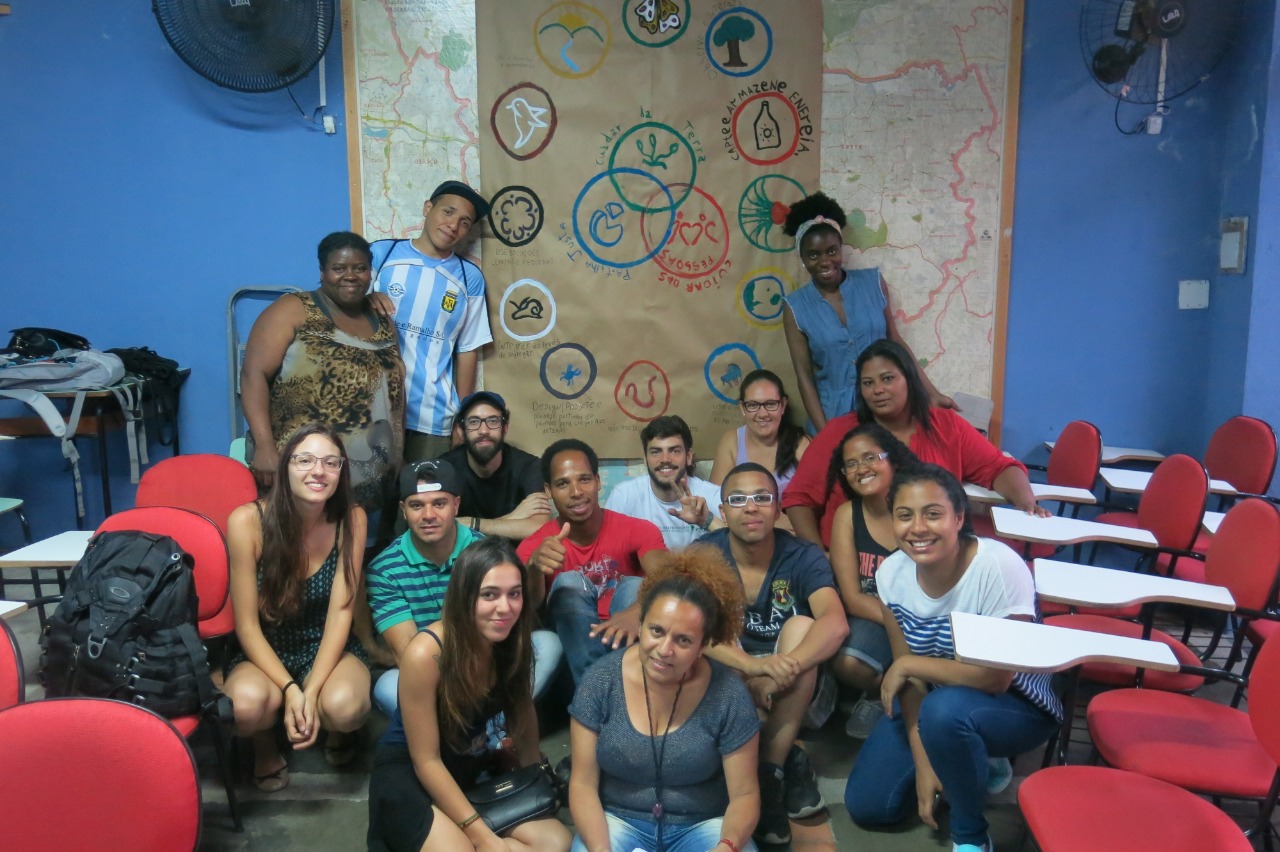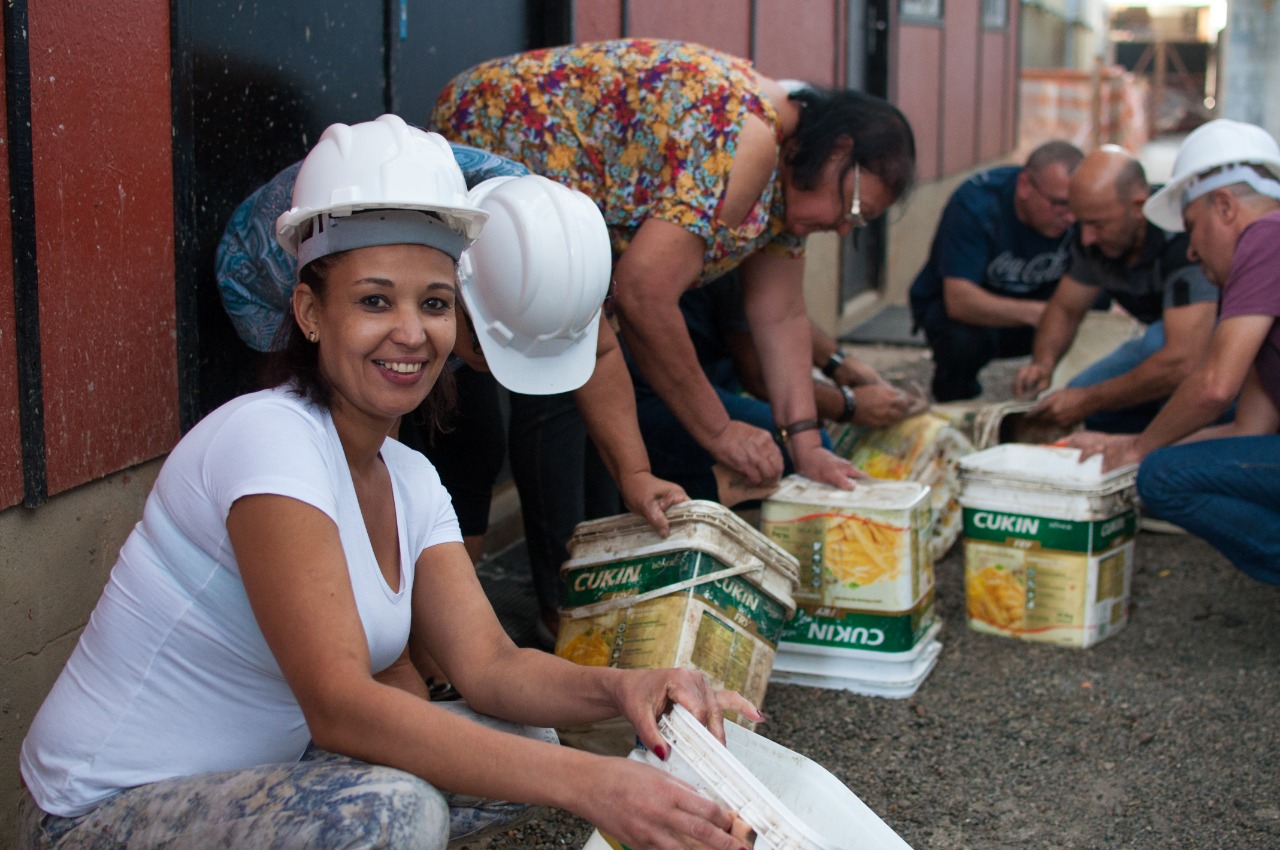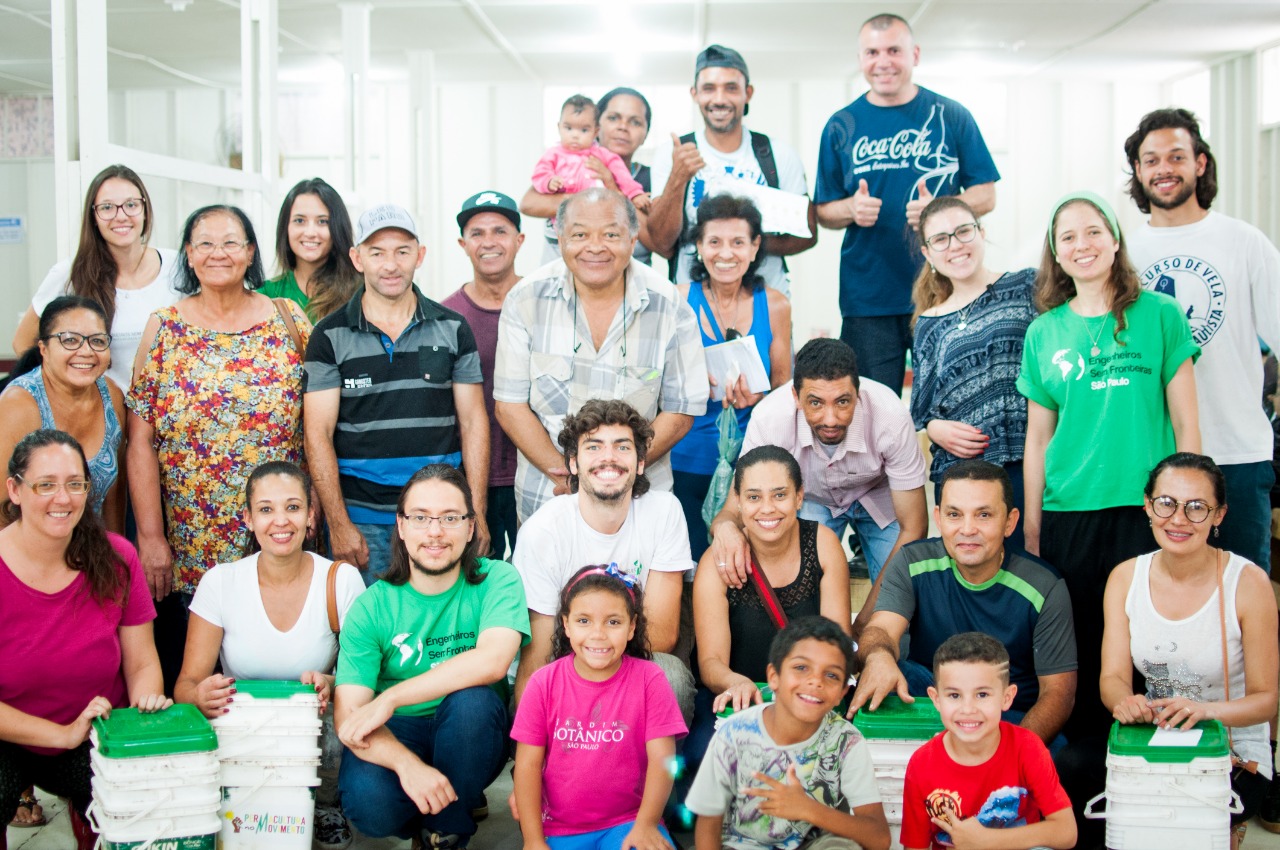PIM- Permaculture in motion: promoting education on sustainable infrastructures
Description
The Permaculture in Motion (PIM) project originated in 2016 when we decided to draw up an initiative addressing the problem of adequate housing in Sao Paulo city. According to the João Pinheiro Foundation (2014), the housing deficit in the Metropolitan Region of São Paulo corresponds to 625,759 households, concentrating approximately 10% of the total Brazilian deficit. even though recognized in 1948 as a fundamental right by the Universal Declaration of Human Rights (UNICEF), the right to housing is often neglected and causes social segregation, peripheralization processes, the occupation of risk areas and violence.
In this context, PIM aims to empower low-income youth in need of housing teaching adequate techniques of permaculture and bio-construction, making them the ‘’knowledge sprayers’’. The project focuses on serving the housing components established in 1991 by the Committee on Economic, Social and Cultural Rights, such as: the availability of services, materials, facilities and infrastructure (through sanitation techniques ecological and solid waste management), habitability (with structural safety and thermal comfort) and cultural adequacy (through actions to encourage the expression of the cultural identity of the community) all this linked to Goal 4, targets 4.4 and 4.7, giving them technical and relevant knowledge and, also, including sustainable development and sustainable lifestyles. In its first edition, the PIM project was target audience 50 young people participating in the construction of the condominium Residencial Barra of Jacaré, located in the district of Pirituba, northwest of São Paulo. The construction of the housing complex is currently underway within the ‘’Minha Casa Minha Vida - Entities Program’’, which aims to meet the housing needs of families organized in the form of cooperatives, associations and non-profit entities. The project construction of 592 housing units, being managed by the Association of Workers of the Vale das Flores Residential Complex, linked to the Association of Homeless Workers from the West / Northwest Zone. It should be emphasized that the training course developed is within a broader initiative: the Building a Place for the Future project. Organized by the Secretariat for Development, Work and Entrepreneurship (SDTE) and the Laboratory of Microstructures of the Polytechnic School of USP, the project was aimed at training workers aged 18 to 40 who lived in occupations of the Association of the Homeless Workers of the West / Northwest Zone and who participated in the construction of their own dwellings under the program ‘’Minha Casa Minha Vida – Entities Program’’. Thus, the initiative had several training courses, among which the training in permaculture and bioconstruction developed by the NGO. Finally, it should be pointed out that the land on which the housing built is the result of the parceling of an area of 30,000 m2, which resulted in two residential lots, an institutional area and a Preservation Area. Therefore, it is a low-density area, with limits of vegetation presence, which shows the need to implement engineering techniques in harmony with the environment, such as permaculture and bioconstruction.
The selection of the people participating in the project was defined in conjunction with the SDTE and the Association. The maximum size of the group was defined as 50 people due to the limitations of space and human resources that the project had. According to the regulation of the Operation Work Program, which was the funder of the scholarship’s participants throughout the project, the person should be resident in the city of São Paulo, be unemployed 4 months or have not accumulated in the last 36 months more than 3 months of CTPS (work and social security portfolio) and have equal or less per capita family income than half a minimum wage. In addition, it was defined that the participants should be between 18 and 40 years old (due to the physical effort required during various stages of the work), schooling and be a member of the Association. The project counted on the accomplishment of eight workshops, being part of the practice and theoretical part. It is noteworthy that the practical workshops had initially been planned to be carried out at the construction site of the condominium Residencial Barra of Jacaré, but have been relocated due to lack of space. Other already consolidated spaces of the city of São Paulo to host the activities, such as the Biennial and São Paulo Cultural Center. The workshops were as follows: Introduction to Permaculture: a theoretical workshop carried out with the objective of the general picture of social, environmental and economic problems permaculture concepts, their history and their theoretical foundations; Compositor Assembly workshop: practical workshop held with the objective of discussing the major environmental problem caused by the growing generation of solid waste, with construction of low-cost composites from reused margarine pails; Visit to the Biennial: with the theme Uncertainty Live, the 32nd Biennial of São Paulo presented works that raised questions about the way in which the society has been building and managing cities and resources, some even using bioconstruction techniques; Alternative Treatment Class: theoretical workshop with the objective of approaching concepts related to the rational use of water and to present alternatives to sewage treatment; Agroforestry Class: a theoretical workshop with the objective of approaching the main and developers of agroforestry, present agroforestry currently structured and discuss concepts related to the soil management; Community Garden Workshop: a practical activity carried out in partnership with the collective of the community garden of the São Paulo Cultural Center, performing such as the selective meadow of the beds, transplantation of species, seeds, seedlings and composting on a medium scale; Renewable Energy Class: a theoretical workshop held with the objective of discuss different types and sources of energy, the energy matrix, contemporary geopolitics, conscious consumption and collaborative economics; Bioconstruction Class: theoretical workshop carried out with the objective of introducing the building, guiding the formatting of a project and discussing concepts related to bioclimatic architecture, energy efficiency, use and integration of elements into a sustainable home, materials from impact and the main construction techniques.
It is believed that the reduction of the housing deficit combined with adequate housing will be better utilized if permaculture permeates the production spaces of the urban peripheral dwelling. This is due to the fact that the Brazilian population, today, is concentrated mainly in the cities and, due to our social structure, in the fringes of them. To be able to include respect and environmental integration in these contexts may be the most effective way to achieve long-term results in the landscape of our cities.
SDGS & Targets
Deliverables & Timeline
Resources mobilized
Partnership Progress
| Name | Description |
|---|
Feedback
Action Network


Timeline
Entity
SDGs
Region
- Latin America and the Caribbean
Geographical coverage
Photos



Website/More information
Countries

Contact Information
Cleuller Silva, President
